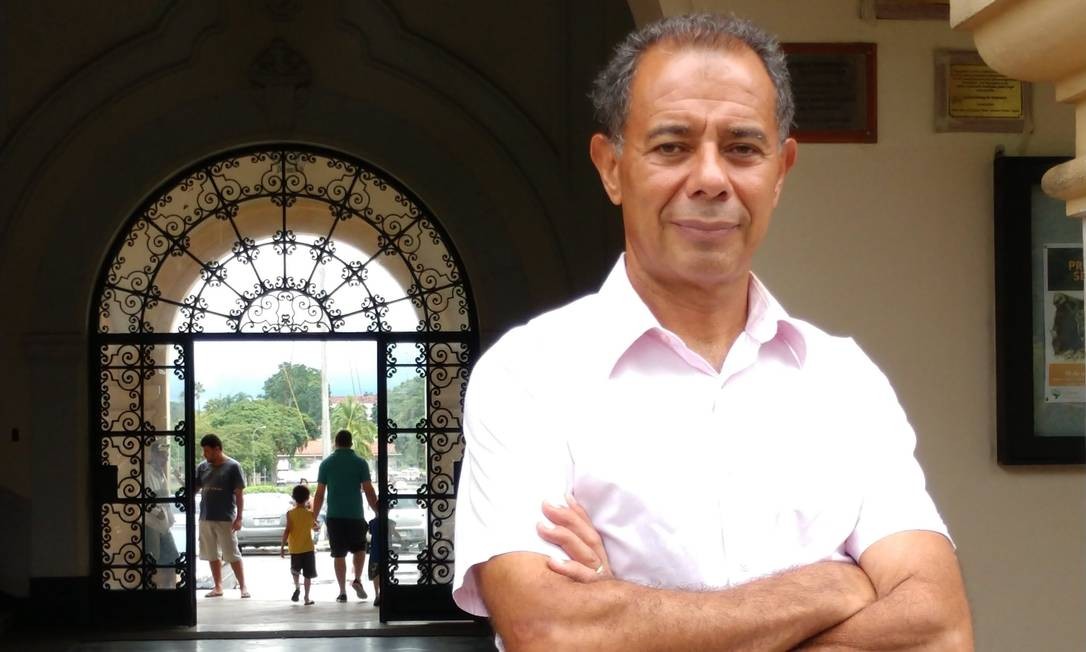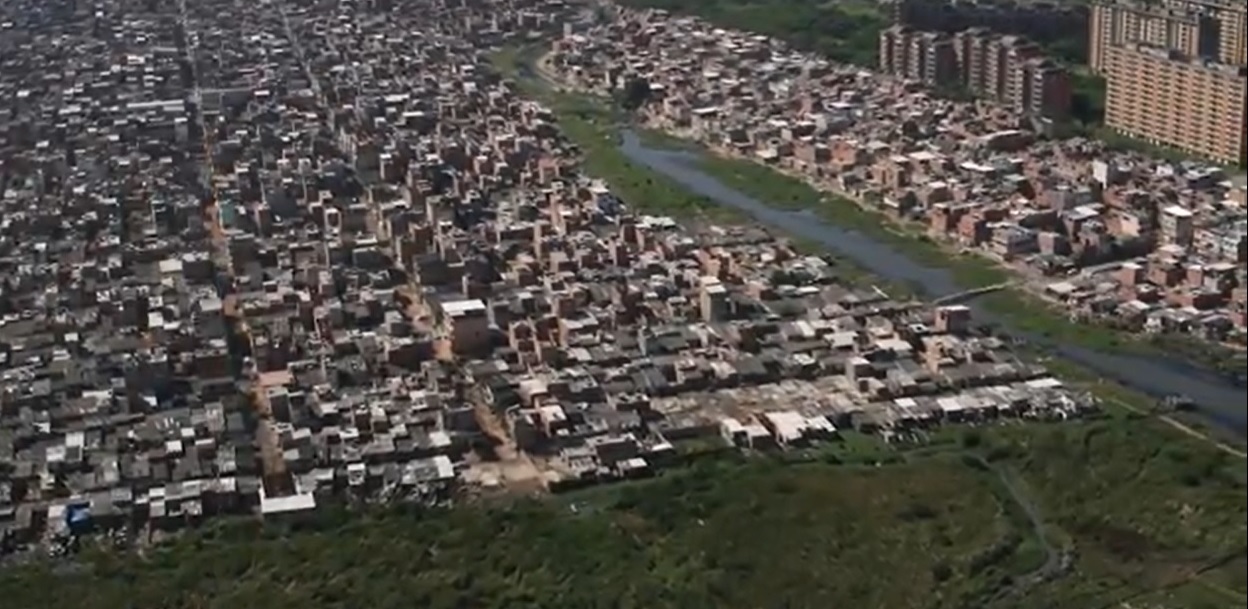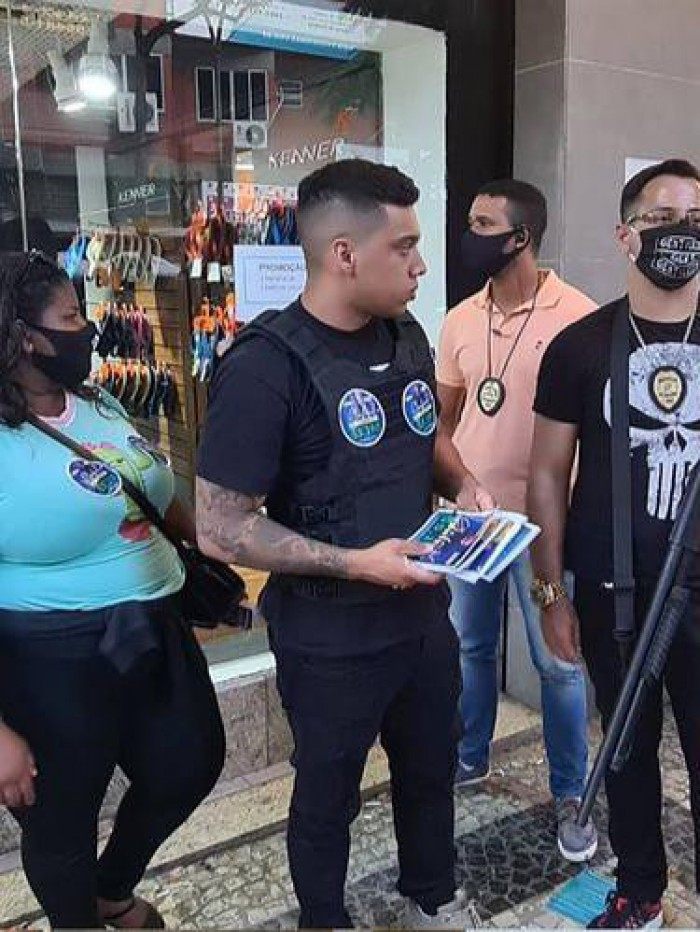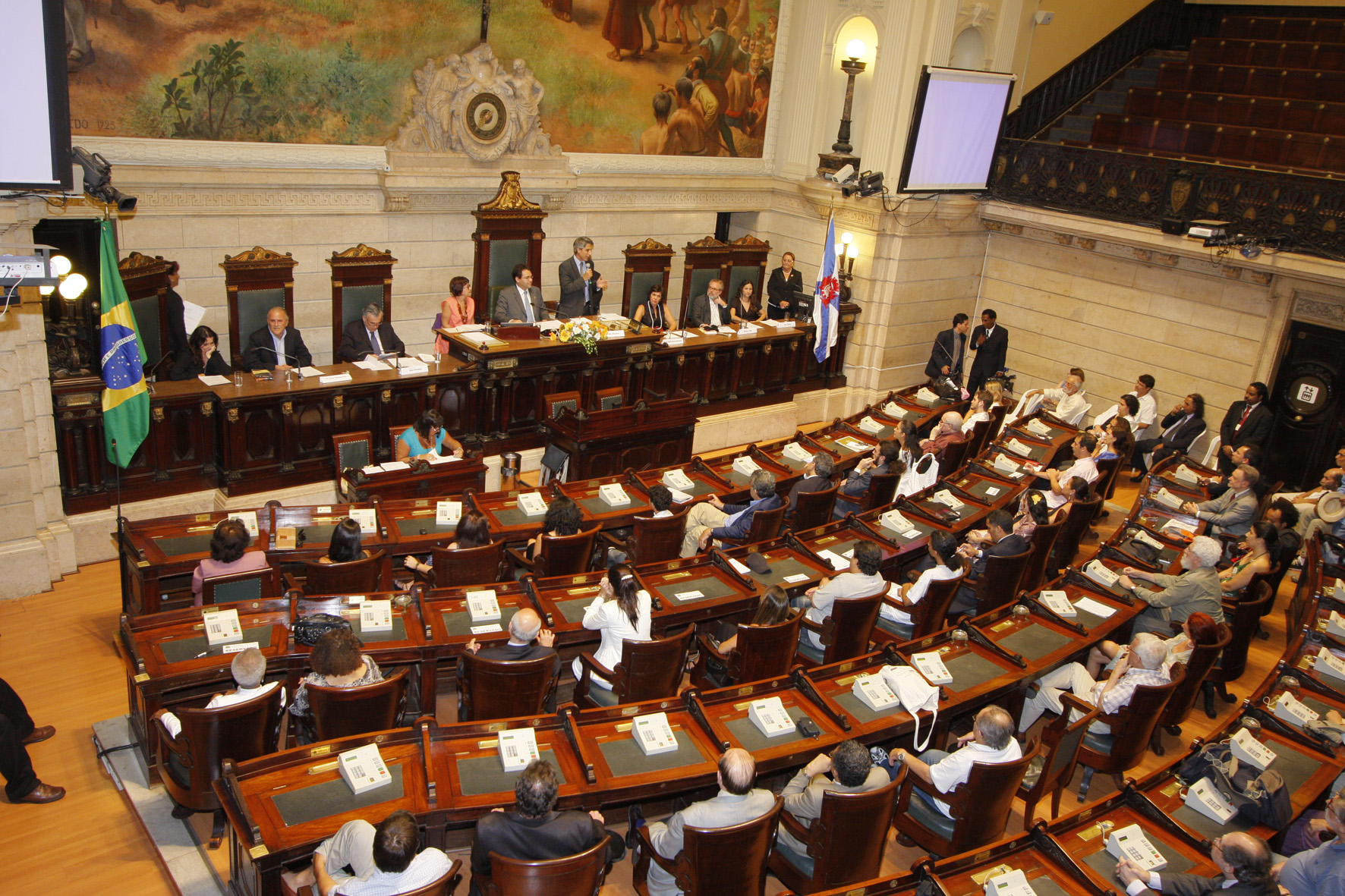
Originally published in Portuguese in 2020, this is part one of a two-part article that discusses the expansion of the state-sanctioned power of vigilante police militias in the Rio de Janeiro Metropolitan Region. Still relevant four years later, with new municipal elections to take place, we publish the article to facilitate international understanding of Rio’s security situation. This first part reflects on the involvement of the militias in the 2020 municipal elections. Click here for part 2.
Paramilitary groups have become increasingly involved in local government and legislatures, consolidating their role in wider discourse and their violent practices over the past four decades.
The involvement of vigilante, off-duty police mafias, known in Rio de Janeiro as militias, in the city’s electoral politics is nothing new. For at least four decades, these groups have been contesting elections directly and indirectly in the Metropolitan Region, though their power has grown dramatically in recent years. In Rio de Janeiro, the militia is not just a parallel power. Because they are off-duty cops, “they are within the State, they’ve learned everything from the State, and they are the State,” according to sociologist José Cláudio Alves, professor at the Federal Rural University of Rio de Janeiro (UFRRJ), who has studied the paramilitary phenomenon for the past 26 years.
This situation has been recognized by Brazil’s Electoral Justice System. Three days before the first round of municipal elections on November 12, 2020, Federal Police agents carried out 12 search and seizure warrants issued by the 16th Electoral Ward. Operation Sólon searched homes, campaign offices, and companies linked to militias in the West Zone of Rio. Of the investigation’s twelve targets, ten were linked to the brothers José Guimarães Natalino and Jerônimo Guimarães, identified in court as founders of the Justice League. The Justice League is one of the largest militias in the state and operates in the Rio das Pedras favela.
Despite the increase in the number of seats held by center-right and left-wing parties in Rio’s City Council, which many considered to be a defeat for Bolsonarism and the militias, Alves warned that the entire spatial-political context of these militias needs to be understood.

Before the 2020 elections, Alves reflected: “The 2020 elections have been characterized by political and economic dynamics that could bring about an ‘apotheosis of the militias’ at the polls. These groups have accumulated criminal social capital with politicians, developing their practical experiences and their control over public discourse for four decades. They have evolved from an anarchic force that recolonizes a territory, to [an organized] force that has transformed the entire city’s territory and services into a [black] market.”
Militia groups were originally formed under the guise of offering “parallel security,” informally fighting crime and especially drug trafficking in the absence of effective policing. Over decades they held territory in several parts of Greater Rio de Janeiro. Today they control not only security, but also businesses, including the sale of essentials like cooking gas, water, basic foodstuffs, and real estate, even building shopping malls, commercial and real estate projects, alternative transport, TV, Internet access, and generating employment in favelas and surrounding areas.
While the original mold for militias was seen as parallel security personnel to protect order and local businesses, they began to monopolize essential services which should be provided by the State, offering inflated prices to the local population. Today, however, militias have become criminal organizations, not only with with military power, but with political power, and functioning symbiotically with the drug trade, according to a study by the Fluminense Research Network on Violence, Public Security and Human Rights.

“The form of domination by militias is much more widespread and totalitarian than that of drug traffickers, which gives them advantages over the management of the business and their control over their territory. Militias need fear to maintain this control, and they often act as a sort of sponsor of the war on drugs. However, the structure of militias is in constant flux, reflecting internal disputes that are still far from stabilizing. Most recently, a growing connection between drug traffickers and militias has been observed, in a phenomenon known as the ‘narco-militia’,” the study revealed.
The research also reveals a symbiosis between changes in the behavior of drug trafficking groups, that have begun to impose militia-style practices in their areas, and vice versa, “with the militia incorporating the drug market into their business model.” The study was carried out by the Study Group on the New Illegalities at the Fluminense Federal University (Geni-UFF), Fogo Cruzado, São Paulo University’s Center for the Study of Violence, the digital platform Pista News and crime hotline Disque-Denuncia.
Against this backdrop, Alves foresaw the 2020 elections as an “apotheosis of the militias at the polls,” due to their influence throughout Rio de Janeiro.
In Rio de Janeiro, politicians associated with militias such as Marcello Siciliano (PP), Zico Bacana (Podemos), Carminha Jerominho (PMB) were not elected. However, Carlos Bolsonaro (Republicanos) was re-elected for the sixth time to the City Council. The younger Bolsonaro received the second most votes of any councilor, with 71,000 votes. With this new term, the Bolsonaro family, which does not hide its ties with militia members, has now been in the Council for 24 years.

While Carlos Bolsonaro lost 35,000 votes relative to the last election, Bolsonarist YouTuber Gabriel Monteiro (PSD), was elected with 60,326 votes, the third highest number in the election. Monteiro is a licensed military police officer: days before the elections, he was caught campaigning with a bulletproof vest alongside an escort of men armed with shotguns. The Military Police denied having approved an official escort for Monteiro and opened an investigation into the case after news spread on social media and in the press.
César Maia (DEM) was also elected, with 55,031 votes. When he was the city’s mayor, he referred to the militias as “community self-defense.”
According to a survey published in the newspaper Extra, nationally, 29 mayoral our City Council candidates in 2020 were suspected of involvement in organized crime. Seven managed to get elected and another 12 got enough votes to remain on the list of alternative candidates in their seats.
Danilo Francisco da Silva, known as Danilo do Mercado (MDB), despite being the target of a Civil Police operation in August, received 6,080 votes. This was the eighth highest vote count in Greater Rio’s Duque de Caxias City Council. Mercado wa suspected of ordering the assassination of a man who did not want to sell him land.

“There are municipalities in Greater Rio de Janeiro that have elected the second generation of militia men: that is to say, their children. The assassins of the 1990s failed to create a second generation, but the militia men did. They took the next step by getting their children elected,” said José Claudio Alves on the Estação Periferia podcast after the first round of voting.
The 2020 elections for the Rio de Janeiro City Hall and City Council were the first elections after the murder of councilor Marielle Franco. Despite the energy that took to the streets and social media after March 14, 2018, which transformed thousands of Black women into “seeds” of political activism, only two Black women from peripheral communities—Thais Ferreira (PSOL) and Tainá de Paula (PT)—were elected for the 2021-2024 legislature. In addition, the widow of Marielle Franco, Monica Benício, was elected with 22,000 votes. Rio’s city council is made up of 51 seats: the racial and gender composition of the Chamber is illustrated below.
This whole scenario reveals the consolidation of a kind of militia ideology and militia geopolitics, as analyzed by José Cláudio Alves in his interview with RioOnWatch before the first round of elections.

This is part one of a two-part article that described the expansion of militias as part of State power in Greater Rio de Janeiro in 2020, but still relevant prior to municipal elections of 2024. Part 1 reflects on the involvement of the militias in the 2020 municipal elections. Click here for part 2.
